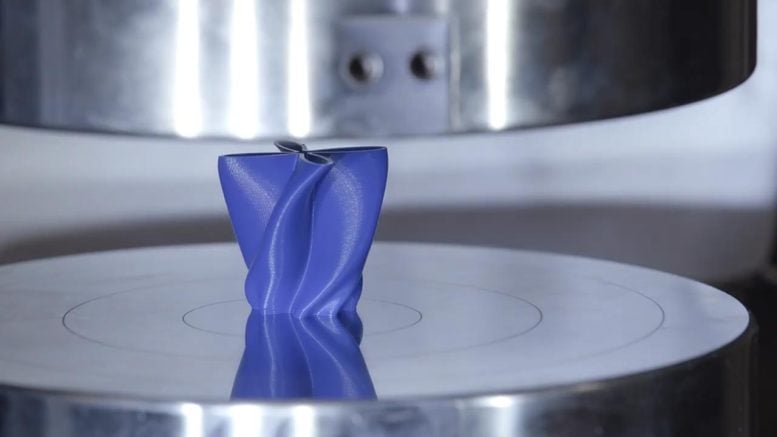- Superpower Daily
- Posts
- OpenAI pay millions to put News Corp's journalism in ChatGPT
OpenAI pay millions to put News Corp's journalism in ChatGPT
AI Robot Creates a Shock-Absorbing Shape No Human Ever Could
In today’s email:
👀 OpenAI didn’t copy Scarlett Johansson’s voice for ChatGPT, records show
🧠 Meta AI chief says large language models will not reach human intelligence
📚 What’s really going on inside an LLM’s neural network
🧰 9 new AI-powered tools and resources. Make sure to check the online version for the full list of tools.


OpenAI and News Corp, the owner of The Wall Street Journal and other notable publications, have entered into a multi-year deal to integrate news from these outlets into ChatGPT. This agreement allows OpenAI to access both current and archived content from News Corp's extensive portfolio to enhance its AI models. According to The Wall Street Journal, the deal is valued at $250 million over five years, paid in cash and credits. News Corp's CEO, Robert Thomson, emphasized the importance of premium journalism and the need to leverage this opportunity in the digital age where content creators often lose out to distributors.
Generative AI has seen a surge in popularity since the release of ChatGPT in late 2022. The quality of AI responses depends heavily on the data used for training, which has traditionally been sourced from publicly available information on the internet. Recently, AI companies have begun formalizing financial agreements with news organizations to ensure their models are trained on reliable and up-to-date information. In addition to News Corp, OpenAI has established partnerships with various media companies, including Reddit, the Financial Times, and the Associated Press, to access high-quality data for training purposes.
This trend of AI companies paying for access to news content is becoming a significant revenue stream for the struggling news industry. However, some publishers remain cautious about these arrangements. The New York Times has taken legal action against OpenAI and Microsoft over the use of its content for AI training, and several media outlets, such as the BBC and The Verge, have blocked OpenAI from scraping their sites. Despite these challenges, companies like Google and Meta are also exploring similar deals to acquire training data for their AI models.

Boston University’s robot MAMA BEAR, developed by Keith Brown and his team in the KABlab, has autonomously created a shock-absorbing shape that achieves a record 75% efficiency in energy absorption. Using a 3D printer, the robot produces small plastic structures and crushes them to measure energy absorption. Each experiment's data is recorded and used to optimize subsequent designs through Bayesian optimization, leading to continuous improvement. Over three years, MAMA BEAR has created over 25,000 structures, surpassing previous efficiency records and contributing valuable data for practical applications.
These efficient energy-absorbing shapes have significant implications for various industries, from cushioning delicate electronics during shipping to enhancing the safety of sports gear and car bumpers. The robot’s record-breaking structure, a four-pointed, petal-shaped design, has already inspired new helmet padding for US Army soldiers, demonstrating the potential for real-world applications. This innovative design balances strength and impact absorption, proving more effective than any human-engineered shape previously known.
The success of MAMA BEAR highlights the growing role of autonomous robots in research, combining machine learning and automation to accelerate scientific discovery. Brown's lab continues to explore new applications and collaborations, utilizing their extensive database to inform further innovations. They are also investigating ways to recycle the 25,000 crushed pieces for future experiments, emphasizing sustainable research practices. The ongoing work of autonomous systems like MAMA BEAR underscores their ability to achieve breakthroughs that would be otherwise impossible due to cost and time constraints.

Meta's AI chief, Yann LeCun, argues that large language models (LLMs) like ChatGPT will never achieve human-level intelligence due to their inability to reason, plan hierarchically, or understand the physical world. LeCun criticizes the reliance on LLMs for achieving human-like AI, as these models can only provide accurate responses when they have been trained with the appropriate data, making them inherently unsafe. Instead, LeCun is focusing on developing a new generation of AI systems through "world modelling," aiming to create machines with human-level intelligence within the next decade.
Meta has heavily invested in AI development to compete with tech giants such as Microsoft-backed OpenAI and Google. Despite recent advancements like Meta's Llama 3 model and Google's multimodal AI agent Project Astra, LeCun believes these improvements are superficial. He argues that LLMs mainly exploit accumulated knowledge from extensive training data and lack the ability to learn and reason organically like humans. Meta's FAIR lab, which LeCun oversees, is experimenting with methods like feeding AI systems with video content to predict outcomes, mimicking how children learn from observing their environment.
LeCun's vision for human-level AI is ambitious and faces skepticism. Some experts doubt the viability of teaching AI common sense and causality, critical components of human intelligence. Despite internal and external criticisms, LeCun remains focused on long-term goals, believing that future AI agents will need human-level intelligence to be genuinely useful, potentially interacting with users through augmented reality or wearable technology.

Scarlett Johansson recently alleged that OpenAI copied her voice for ChatGPT's "Sky" after she refused to license it. Despite her claims and CEO Sam Altman's cryptic tweet referencing the 2013 movie "Her," documents and recordings shared by OpenAI with The Washington Post show that a different actress was hired for Sky's voice months before Johansson was contacted. OpenAI confirmed that their casting call was for nonunion actors with voices aged between 25 and 45, aiming for a warm and engaging tone, not specifically Johansson's voice.
The actress who provided Sky's voice affirmed that she was never told to mimic Johansson or the movie "Her." Her natural voice matched the AI-generated voice, as confirmed by her agent and initial voice test recordings. OpenAI paused the use of Sky in ChatGPT following Johansson's allegations and published a blog post detailing the development process of the AI voices. They reiterated that the Sky voice was not intended to resemble Johansson, and Altman was not deeply involved in the casting process.
Legal experts have noted that Johansson might have a case against OpenAI, comparing it to Bette Midler's successful lawsuit against Ford in the 1980s for using an impersonator's voice. However, proving that Sky's voice is identifiable as Johansson's could be challenging. Joanne Jang from OpenAI, who led the AI voices project, maintained that Sky sounds nothing like Johansson, despite some shared vocal qualities. The actress behind Sky expressed that she was aware of the project's nature and viewed it as a necessary step toward the future of voice technology.
Other stuff
Truecaller partners with Microsoft to let its AI respond to calls in your own voice
Here’s what’s really going on inside an LLM’s neural network
Schumacher's family wins compensation for AI 'interview'
FCC proposes all AI-generated content in political ads must be disclosed
TikTok turns to generative AI to boost its ads business
Amazon plans to give Alexa an AI overhaul — and a monthly subscription price
Hugging Face is sharing $10 million worth of compute to help beat the big AI companies
Superpower ChatGPT now supports voice 🎉
Text-to-Speech and Speech-to-Text. Easily have a conversation with ChatGPT on your computer


Granola - The AI notepad for people in back-to-back meetings

Nowadays - AI assistant for corporate event planning

Kili - Automate repetitive tasks using AI

Count - AI-Powered Accounting for Small Business

Keep track of your competitors

Empower - GPT-4 level function calling models for real-world tool using use cases

Findr 2.0 - AI search assistant for work
Unify - The best LLM on every prompt
Visible AI Inbox - Turn emails into portfolio insights with Visible AI inbox



How did you like today’s newsletter? |
Help share Superpower
⚡️ Be the Highlight of Someone's Day - Think a friend would enjoy this? Go ahead and forward it. They'll thank you for it!
Hope you enjoyed today's newsletter
Did you know you can add Superpower Daily to your RSS feed https://rss.beehiiv.com/feeds/GcFiF2T4I5.xml
⚡️ Join over 200,000 people using the Superpower ChatGPT extension on Chrome and Firefox.



